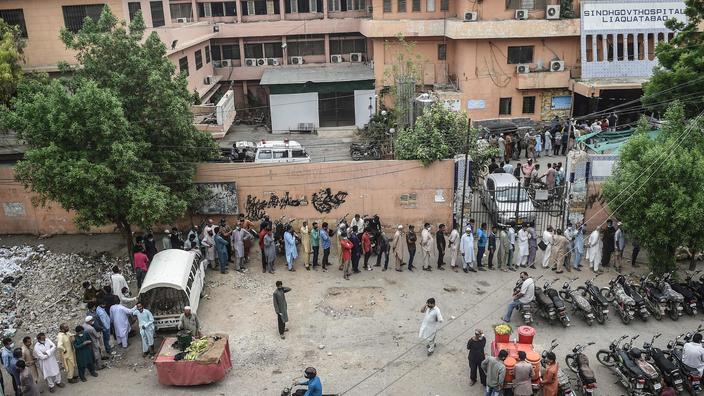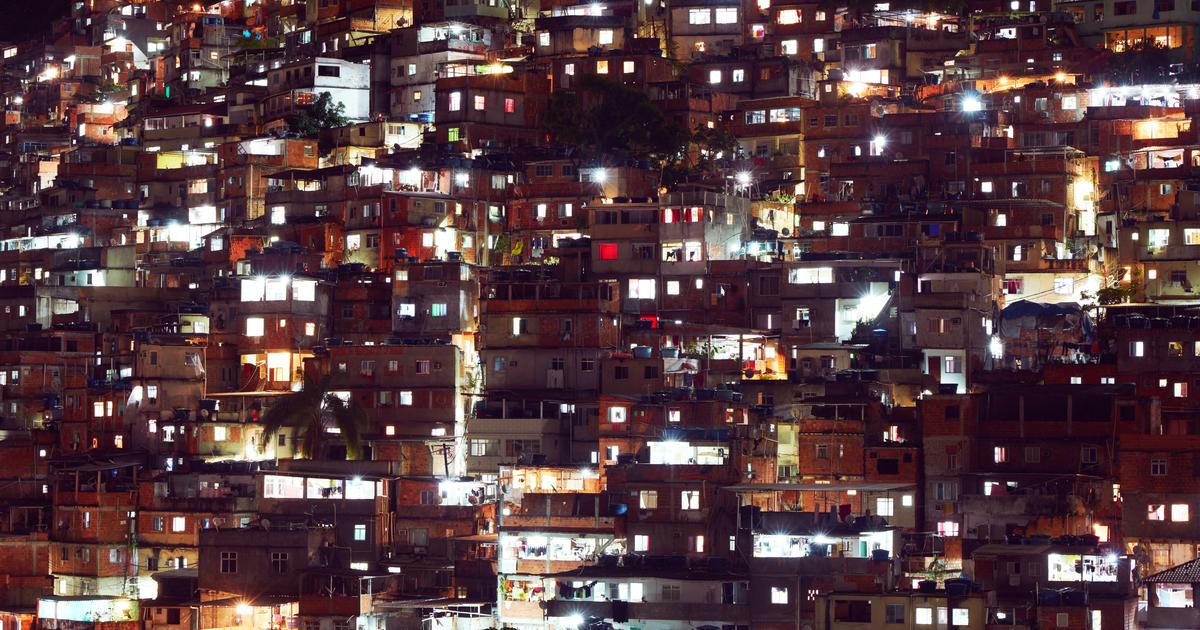While some governments are talking about a possible third injection by the end of the year, as in Britain or France, and Israel has already started administering a third dose to the most vulnerable people, the boss of the World Health Organization (WHO), Tedros Adhanom Ghebreyesus, left his reserve in mid-July to recall the importance of global solidarity: "
The rich countries are starting to say: we have the virus under control, it is no longer our problem ... I am not sure they are off the hook.
And I'm not sure they controlled it either, because of the Delta variant and other variants that might emerge.
I'm sorry to say that, but, if solidarity doesn't work, everyone knows why.
It's because of greed.
No one is out of the woods yet in this story.
"
Read also: The pandemic and the delays in vaccination are accentuating the growth gaps in the world
At the beginning of June, the four major world organizations (WHO, WTO, IMF and World Bank) estimated in a joint forum that these inequalities of access have favored the emergence of variants of the coronavirus which have led to new epidemic outbreaks in developing countries. of development.
“Ending the pandemic is possible - and today it requires global action
», They say. Since then, they have opted for the provision of a tool the IMF-WHO COVID-19 Vaccine Supply Tracker. This is a comprehensive database, established jointly by the IMF and WHO, to track the number of vaccine doses obtained by country and area through different channels, such as bilateral agreements with manufacturers, donations of vaccine. 'other countries, multilateral agreements (via the COVAX Facility), etc. This database draws information from the public domain, COVAX Global Vaccine Market Assessment, United Nations Children's Fund (UNICEF), Duke Global Health Innovation Center, Airfinity, Our World in Data, Groupe from the World Bank, the Asian Development Bank and African Vaccine. About 200 countries are scanned by the tool,knowing that most vaccines require two injections to be fully effective.
Read also: Covid-19: WHO criticizes the strategy of rich countries and calls not to vaccinate the youngest
Canada can vaccinate 4 times its population
According to the first elements communicated, Canada emerges as the country having the most secure its supplies: it can, in fact, afford to vaccinate more than 4 times its population.
A quartet of countries made up of New Zealand, Italy, Australia and Hungary follows, which for their part are assured of being able to administer at least 3 doses to its population.
Europe, from a general point of view, is rather well placed, France being for example in the Top 20. The United Kingdom and the United States for their part secured more than 2 doses.
This is not the case for Japan, Brazil, India or Russia.
At a time when the planet exceeds four billion injections, poor countries are still struggling to obtain precious doses of anti-Covid vaccines, despite recent donations from rich countries.
According to data provided by the IMF and WHO, the African continent is the one at greatest risk.
Africa remains the continent most behind, with 4.8 doses administered per 100 inhabitants, 10 times less than the world average (52).
And most countries do not in fact have the possibility of vaccinating their entire population.
A situation that can also be found in a number of countries in the Middle East.
Saudi Arabia, Iran, Pakistan and Afghanistan are in dire need of supplies.
Three countries have not started their vaccination campaigns
Burundi, Eritrea and North Korea are now the only countries that have not yet started their vaccination campaigns. However, Burundi has declared itself ready to receive doses via the international Covax program, but has disclaimed any responsibility in the event of side effects. The Burundian government had so far refused to benefit from the Covax initiative, intended to guarantee disadvantaged countries fair access to vaccines, explaining that it did not want vaccines still "
at the experimental stage
".
For 2021-2022, Covax hopes to receive at least 610 million doses funded by donors. Of this total, the United States must provide 260 million, the countries of the European Union 200 million, the United Kingdom 80 million and Canada and Japan, 30 million each. An international mechanism which two particularly authoritarian regimes, Belarus and Turkmenistan, cannot take advantage of, thus explaining their last two places in the ranking of the WHO and the IMF.


/cloudfront-eu-central-1.images.arcpublishing.com/prisa/PCE7NMB26ZDVRIQX2R26JSNH6A.jpg)
/cloudfront-eu-central-1.images.arcpublishing.com/prisa/OOLBKF5K4VFN7EA7IFFA4PMVUE.jpg)





